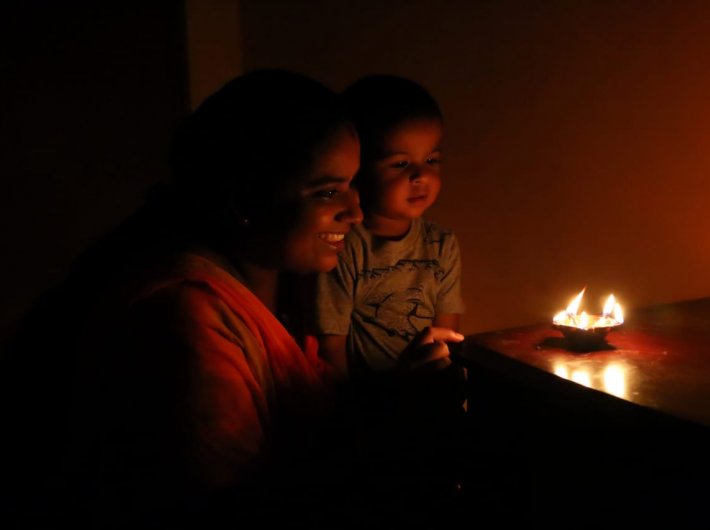Nationwide survey by CRY finds invisible side-effects on the major population group
As India has remained locked down for 50 days and counting, children – about 40% of the population – have come to bear the burden in ways that are yet to be acknowledged, finds a survey. Their immunisation has suffered, their education is affected and instead of outdoor activities they are forced to spend more and more time online, often without helpful monitoring.
The rapid online perception study, conducted by Child Rights and You (CRY), the leading NGO in its field, titled ‘Understanding the Effects of COVID-19 on Children’, has found that access to immunisation suffered a huge setback across all regions of the country and nearly 50% parents with children under five years of age have not been able to access immunisation services.
North India has the highest proportion at 63%, followed by the west at 39%. Less than a third of the respondents reported inaccessibility to immunisation services from other regions. One in every four respondents (27%) of the total respondents, i.e., the parents/ primary caregivers having children reported non-accessibility of regular healthcare services for children. This was most reported from the north at 31%, followed by the south at 21%. In other regions this issue was faced by less than 20 percent of the parents.
In terms of education, three in every four (77%) of the respondents have reported that the lockdown has affected education and learning with a maximum of 87% in north India and the least in the West at 56%.
As many as 60% of the respondents said that children’s extracurricular activities were most affected. An equal proportion believed that children’s friendships and social lives were affected and 59% perceived that children’s outdoor games and recreational opportunities were majorly compromised.
As many as 37% of the respondents said that children’s psychological well-being and happiness have been affected during this phase with the highest numbers reported from the eastern states at 51%.
The lockdown has forced children to turn to the internet in a big way, with 88% respondents reporting an increase in their children’s exposure to online activities – 45% of them reported a greater increase. Regionally, 40% respondents from the south, north and west said that screen time for the child had increased considerably. Only 43% of the parents reported being able to monitor their children’s online activity continuously. This was reported most from the west at 68%, followed by the east at 50%. As many as 52% respondents reported the provision of supervised access to the internet for their children and one in every five respondents (22%) reported taking no measures to protect their children when they were online. This was the most reported from the north, at 25%.
“Children and women are most vulnerable to the secondary effects of Covid-19 due to disruption of regular health and nutrition services. However, it did not dampen the spirit of our nutrition warriors who found innovative ways and means to tackle the unprecedented crisis by unprecedented response. When the machinery stops, it also the time to fix. Home-based care got a new branding with nutrition messaging by use of digital media. THR was provided at the doorstep. Health for all and hunger for none should set the agenda for tomorrow. Partnership of government, academia, industry, civil societies, philanthropy and individual exemplified combined strength and social solidarity can defeat Sars Cov2,” said Dr Raj Bhandari, paediatrician and member, National Technical Board of Nutrition and Health, GoI, who was part of an eminent panel of experts that shared their insights at the release of report through a national webinar on May 12.
Puja Marwaha, CEO, CRY, said that in a country where 40% of the total population are children and the budget allocated for them is just a little over 3% of the entire budget outlay, it is but obvious that they do not feature as the topmost topic of discussion while the country battles a pandemic. However, this most vulnerable section of the society has been one of the worst affected by the side-effects of Covid-19. “To be able to address this and to be better prepared to support the marginalised children of the country during and after the lockdown we conducted the online survey in 23 states and union territories of India,” she said in a release.
The survey also revealed that more than half of the respondents (54%) said they had bonded well with their children over household chores and 56% said so while watching movies together. However, one in every 10 respondents said they were not able to spend much time with their children during the lockdown. As many as 54% said they had open discussions with their children about the current situation and 47% respondents said they were trying to divert their children’s minds from the reality.
The online perception study was conducted during the first and second phases of the lockdown, based on responses of about 1,100 parents or primary caregivers from across the country.

